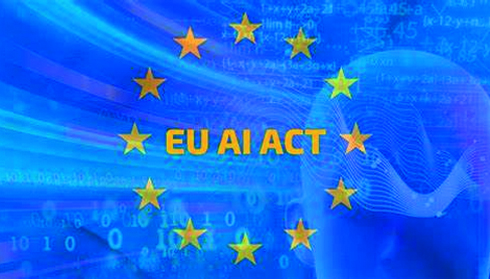
The EU’s AI Act: Striking a Balance Between Innovation and Regulation
People are hailing the European Union's AI Act, which took effect on August 1, 2024, as groundbreaking legislation that aims to regulate the continent's rapidly expanding artificial intelligence (AI) landscape. While some have praised the Act as a crucial protection against possible AI exploitation, others have raised concerns about its practical ramifications, particularly for software developers and AI practitioners.
According to Professor Holger Hermanns of Saarland University, who has extensively examined the AI Act, "The AI Act shows that politicians have understood that AI can potentially pose a danger, especially when it impacts sensitive or health-related areas." This feeling emphasises the legislation's principal goal: to safeguard people from the threats posed by AI systems, particularly those that intrude into sensitive fields such as healthcare, banking, and employment.
However, the reality for programmers, who are responsible for the development of AI systems, differs. According to Hermanns, the most common question among programmers is, "So what do I actually need to know?" The AI Act is a thick 144-page law, and many developers struggle to find the time or inclination to work through its complexities.
Hermanns coordinated the research team, which included legal specialists from Dresden University of Technology, with the goal of explaining the AI Act to programmers. Their future document, "AI Act for the Working Programmer," clarifies how the legislation will affect day-to-day operations. According to doctorate student Sarah Sterz, "On the whole, software developers and AI users will not notice much of a difference." Understanding the AI Act's ramifications requires distinguishing between high-risk and low-risk AI systems. The legislation aims to ensure that AI systems employed in crucial sectors, such as job application screening, medical diagnostics, or credit scoring, do not perpetuate discrimination, cause injury, or operate unfairly. High-risk systems must now meet demanding standards, such as rigorous training data testing, detailed system logs, and comprehensive user documentation.
"For instance, if AI software is created with the aim of screening job applications and potentially filtering out applicants before a human HR professional is involved, then the developers of that software will be subject to the provisions of the AI Act as soon as the programme is marketed or becomes operational," says Hermanns. This is a significant move since it puts the responsibility on developers to guarantee their AI systems are fair, transparent, and accountable.
In contrast, AI systems that do not encroach into sensitive areas—such as those employed in video games or spam filters—will be largely unaffected by the new restrictions. Hermanns talked about how "things that are already illegal today, such as the use of facial recognition algorithms for interpreting emotions, will remain prohibited."
While some detractors believe that the AI Act will hinder innovation by implementing burdensome rules, Hermanns and his colleagues are more optimistic. He told me, "I see little risk of Europe falling behind international developments as a result of the AI Act." People view the Act as a pioneering attempt to create a legislative framework that balances the need for innovation with the need to protect individuals from potential AI-related risks.
Furthermore, the Act does not impose any restrictions on research and development in either the public or private sectors, which raises certain fears about its influence on AI innovation. Sterz asserts that the AI Act will not significantly affect non-contentious AI systems like those found in video games or spam filters.
The European AI Act is an important step towards regulating AI on a continental basis, setting a precedent that other regions may soon follow. While the Act imposes significant new criteria for high-risk AI systems, it gives plenty of room for future innovation and growth in less sensitive areas. As the AI Act's practical consequences become clear, it will be critical to monitor how these rules impact the AI industry in Europe and beyond.